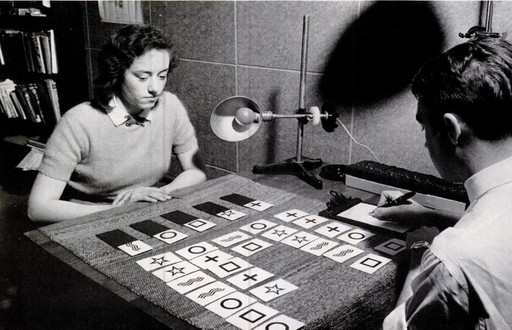The quest to understand phenomena like thought transference and second sight has a long history, but early investigations often lacked scientific rigor. It wasn’t until the establishment of organizations like the Society for Psychical Research in 1882 that controlled studies into telepathy, clairvoyance, and precognition began to emerge. However, the real turning point in formal Esp Tests came in the 1930s with the pioneering work of Joseph Banks Rhine at Duke University.
Rhine founded the first laboratory dedicated to the scientific examination of psychic abilities and is credited with developing standardized ESP tests. He coined the term ‘extrasensory perception’ (ESP) as an overarching term for telepathy, clairvoyance, and precognition, and his work focused on creating methods to objectively measure these abilities.
One of the most iconic tools in Rhine’s ESP tests was the Zener card. These specialized cards, designed by Karl Zener, featured distinct symbols: a circle, a cross, waves, a square, and a star. Participants in these early ESP tests were tasked with guessing the sequence of cards in a deck, attempting to demonstrate extrasensory perception. While card guessing remains a recognizable method in parapsychology, contemporary ESP tests have evolved to include more interactive and complex approaches.
Zener cards used in early ESP tests for extrasensory perception, featuring symbols like circle, cross, waves, square, and star.
Modern ESP tests often incorporate ‘free response’ methods, where individuals attempt to perceive details from concealed stimuli like photographs or video clips, offering a richer and less constrained testing environment. Regardless of the method, the underlying principle of ESP tests remains rooted in scientific protocol, aiming to differentiate genuine psychic ability from chance.
If you are curious about your own potential, online ESP tests are readily available. While chance plays a significant role in any single test, consistently high scores might suggest something more. For those interested in pushing their limits, ESP or Precognition Championships offer a platform to compete and potentially be recognized among high achievers.
